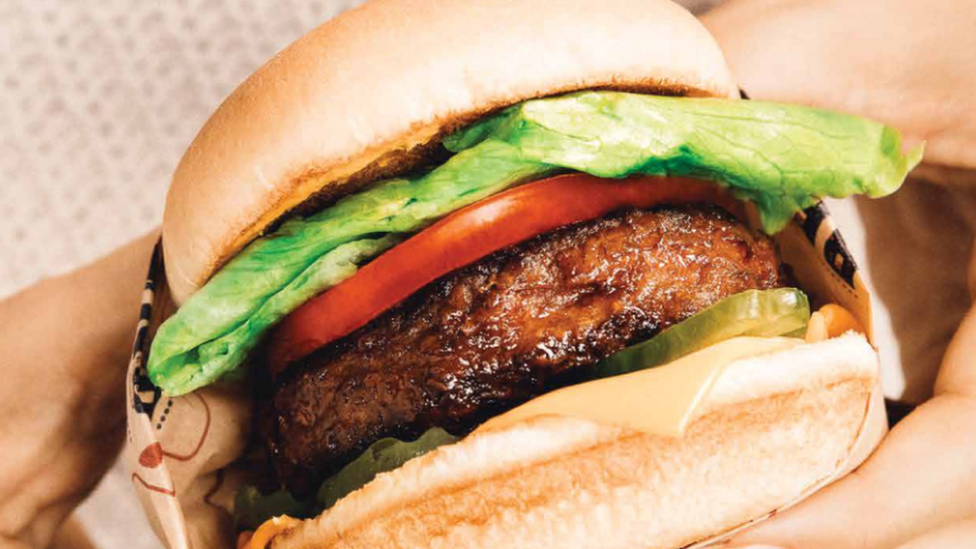Farming Wales: The farmer making vodka from sheep milk
- Published
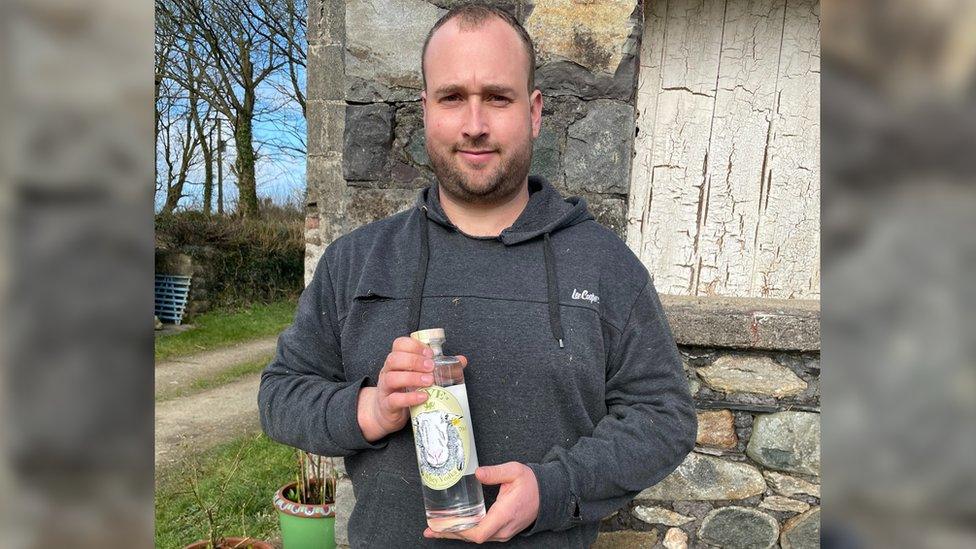
Bryn Perry says his Ewe Whey Vodka has a "creamy finish which can be drunk neat"
As a tractor rumbles past mid-way through our interview, I have to check I haven't misheard.
"You make your vodka from... sheep's milk?," I have to ask.
I hadn't misheard. Award-winning young farmer Bryn Perry, from Haverfordwest in Pembrokeshire, uses an innovative method of recycling leftover whey from his cheese-making in order to produce the spirit.
Before you recoil with a resounding "yuck", Bryn insists his Ewe Whey Vodka is very pleasant.
The principle is similar to milk stout, he explains. The sugars in the whey are fermented in order to make a kind of beer, which is then distilled to produce the finished vodka.
Although Bryn and his partner Rebecca Morris describe it as having a "creamy finish which can be drunk neat", he says it's by no means a "milkshake for grownups".
'No justification for waste'
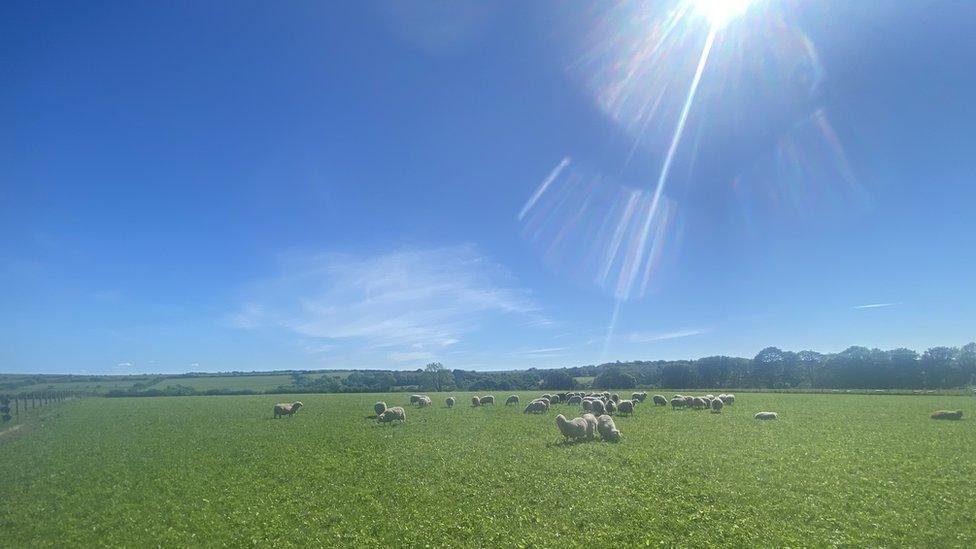
Bryn and partner Rebecca keep Dutch sheep because of their higher milk yields
"You tell people you're making vodka from ewes' whey, and they immediately presume it will be a milky, dairy-based drink," he said.
"In truth it's quite similar to a normal vodka, but smoother - the sort of thing you might enjoy with some stilton and grapes in place of a port."
He said the idea came to him after the pain he felt while pouring gallons of whey down the drain.
"Environmentally, financially, morally, there's no justification for wasting any farming by-product these days," said Bryn.
"Since setting up, we've been making five different varieties of sheep's milk cheese, but everyday we threw away half of everything we collected from the milking parlour."
How do you make vodka from sheep milk?
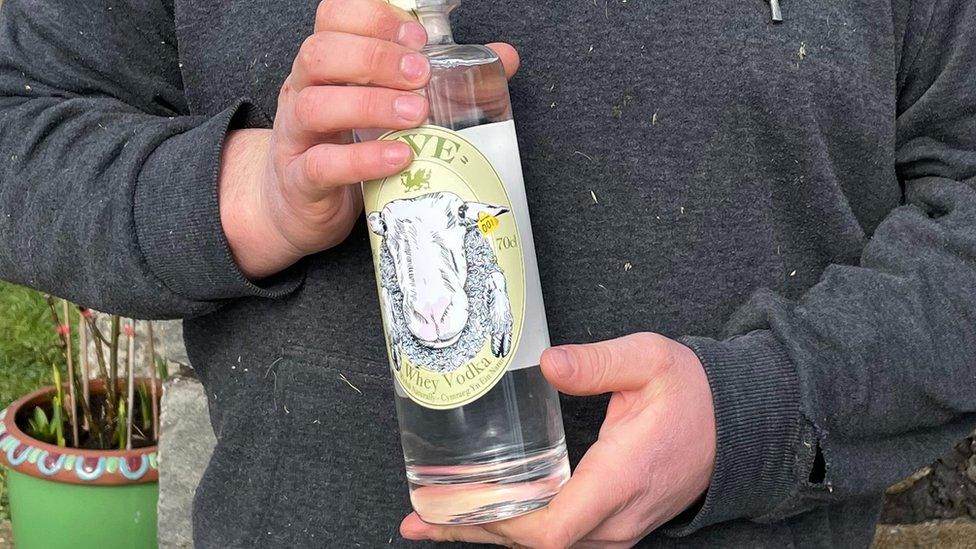
After the curds are separated for use in their cheeses, the leftover whey is transported to the nearby In The Welsh Wind distillery, in Tan-y-Groes, for processing.
It took them a year of tinkering with the recipe before Bryn was awarded the Brinley Williams Memorial Award for best emerging farmer in Wales.
"The precise process is a closely guarded secret - after all the effort we've put into it we're not about to tell everyone how it's done," said Bryn.
"We currently use Dutch sheep because they have the best milk yields, but we're in the process of trying to cross-breed them with native Welsh sheep whose feet are hardier for our hilly conditions."
'Pretty niche'
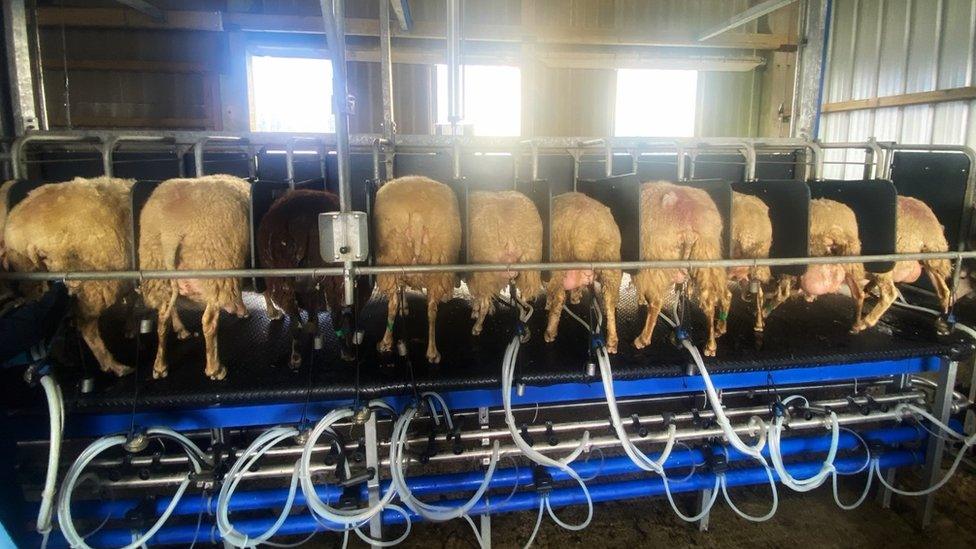
Bryn first read about the use of sheep whey to make spirits in New Zealand
As proof that fact really is stranger than fiction, the idea of sheep's milk alcohol was mooted on The Archers when gin manufacturer Toby Fairbrother tried to source Borchester Blue cheese producer Helen Archer's discarded whey in order to make milk gin.
But Bryn and Rebecca say they were only the second in Europe to make it a reality.
"I hadn't heard about the Archers storyline," he laughed.
"I got the idea from someone in New Zealand, who I think was the first in the world at the time. When I started investigating it there was no-one in Europe making the same thing, though one other company did eventually beat us to market. Even so, we're still pretty niche."
Putting waste to use in Wales
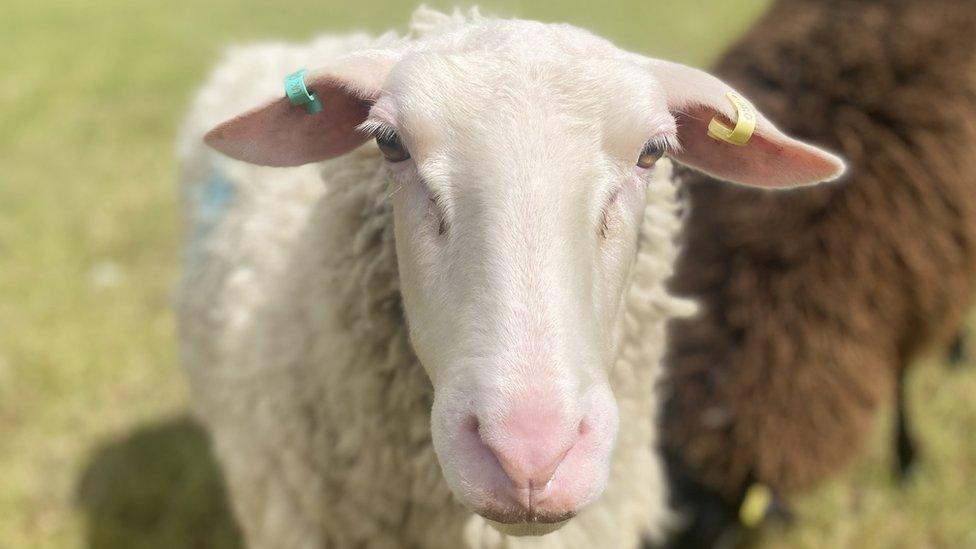
Bryn and Rebecca's Ewe Whey Vodka is not currently available to buy online, but will be soon
Their vodka is the latest in a growing line of Welsh efforts to reuse by-products which would ordinarily be thrown away.
Pennotec, based in Y Ffôr, near Pwllheli in Gwynedd, are developing a process to use the apple pulp from cider production as a substitute for fat in ready-meals, as well as waste shells from seafood processing as a natural water clarifier for use in filter systems for swimming pools and hydrotherapy.
Meanwhile, after two years of intensive research and experimentation, the Cameron brothers opened Dyfi Distillery, external and use hedge trimmings from local farms to provide botanicals for their gin.
And distillers Aber Falls, external are using their waste pot ale, which is the precursor to whisky, as fertiliser on local farms, while spent grain is recycled as cattle feed.
Ewe Whey Vodka is currently only available at farmers' markets or direct from Bryn and Rebecca's farm, although they are hoping to have online sales available in time for Mothers' Day.
To find out more, listen to Country Focus on BBC Radio Wales at 07:00 GMT on Sunday, or on BBC Sounds.

THE STORY OF MIWSIG: Eleri Price and Huw Stephens time travel with Welsh language pop
MARGINS TO MAINSTREAM: Michael Sheen introduces new writers revealing their truths

- Published21 October 2021
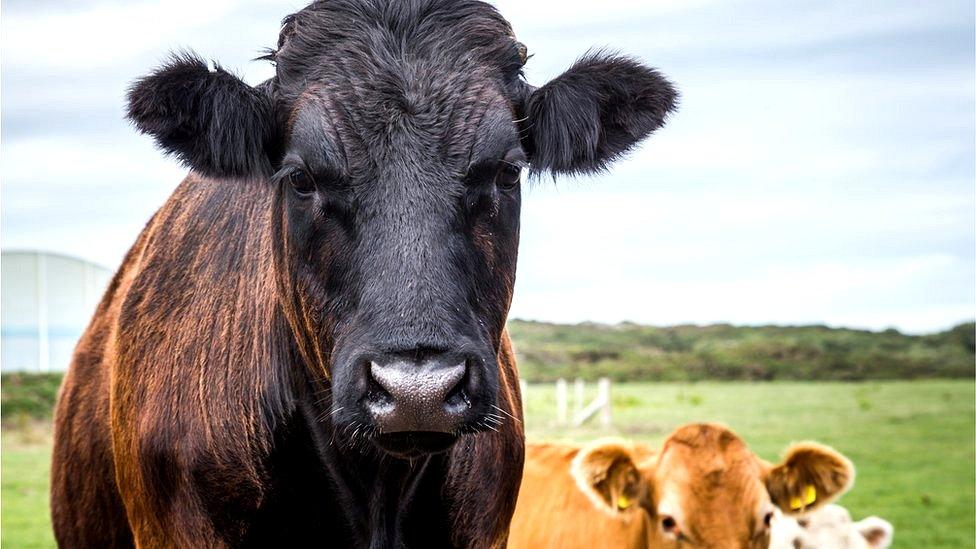
- Published16 September 2021
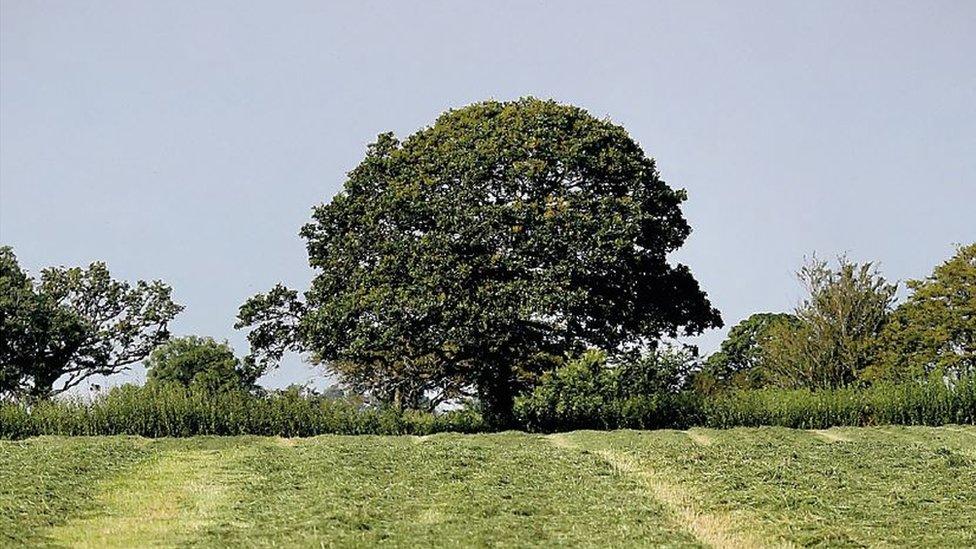
- Published11 August 2021
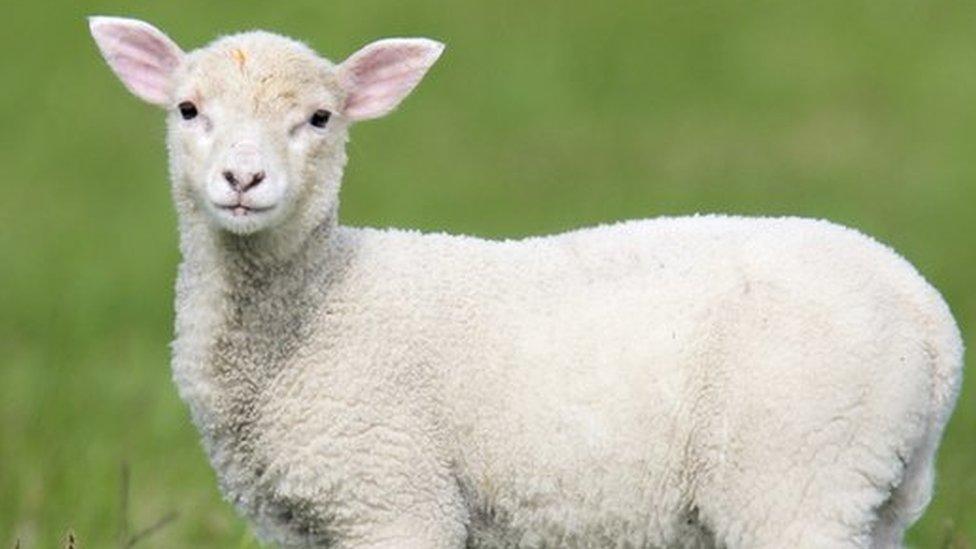
- Published9 July 2021
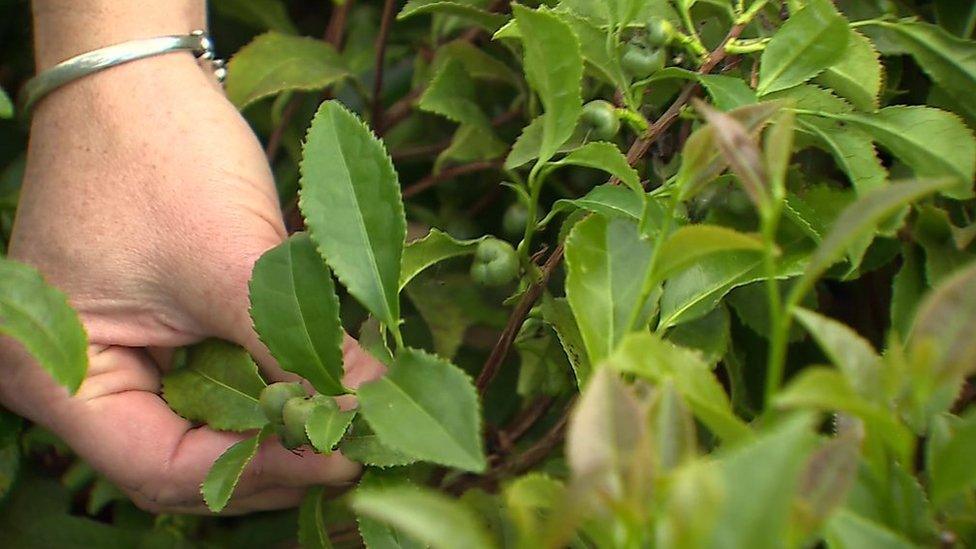
- Published1 March 2021
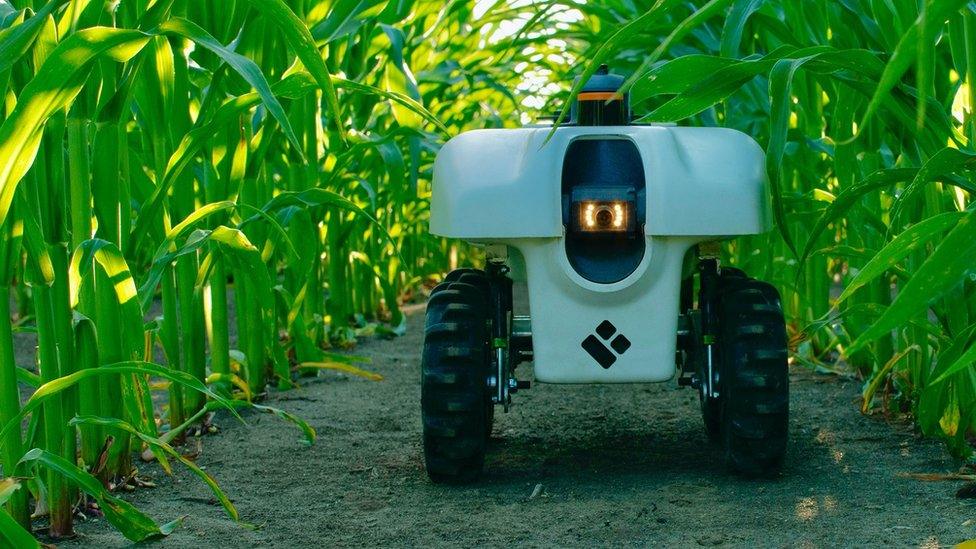
- Published30 April 2019
